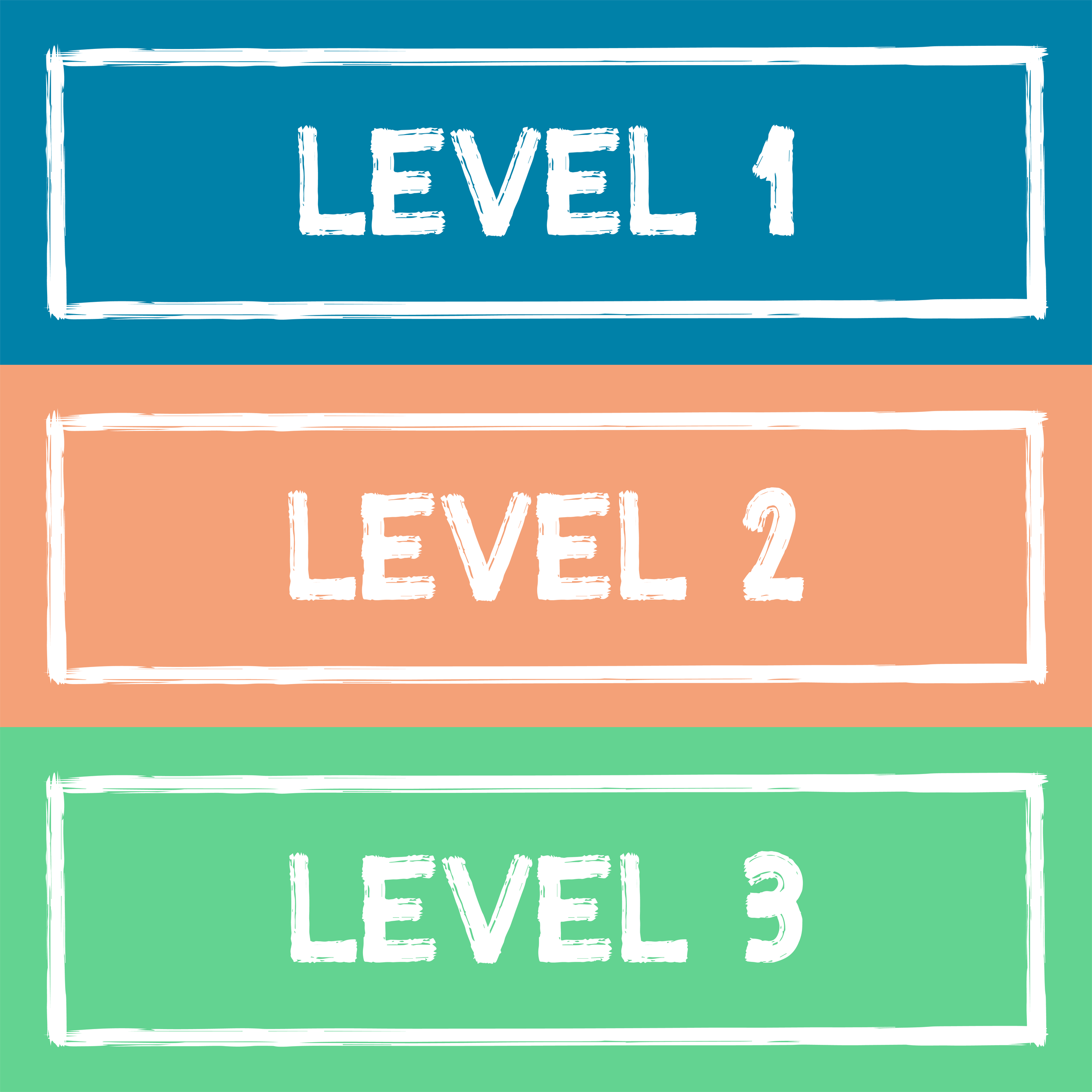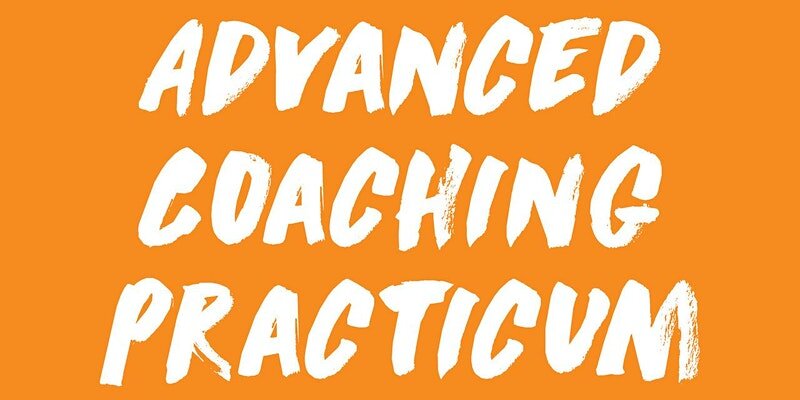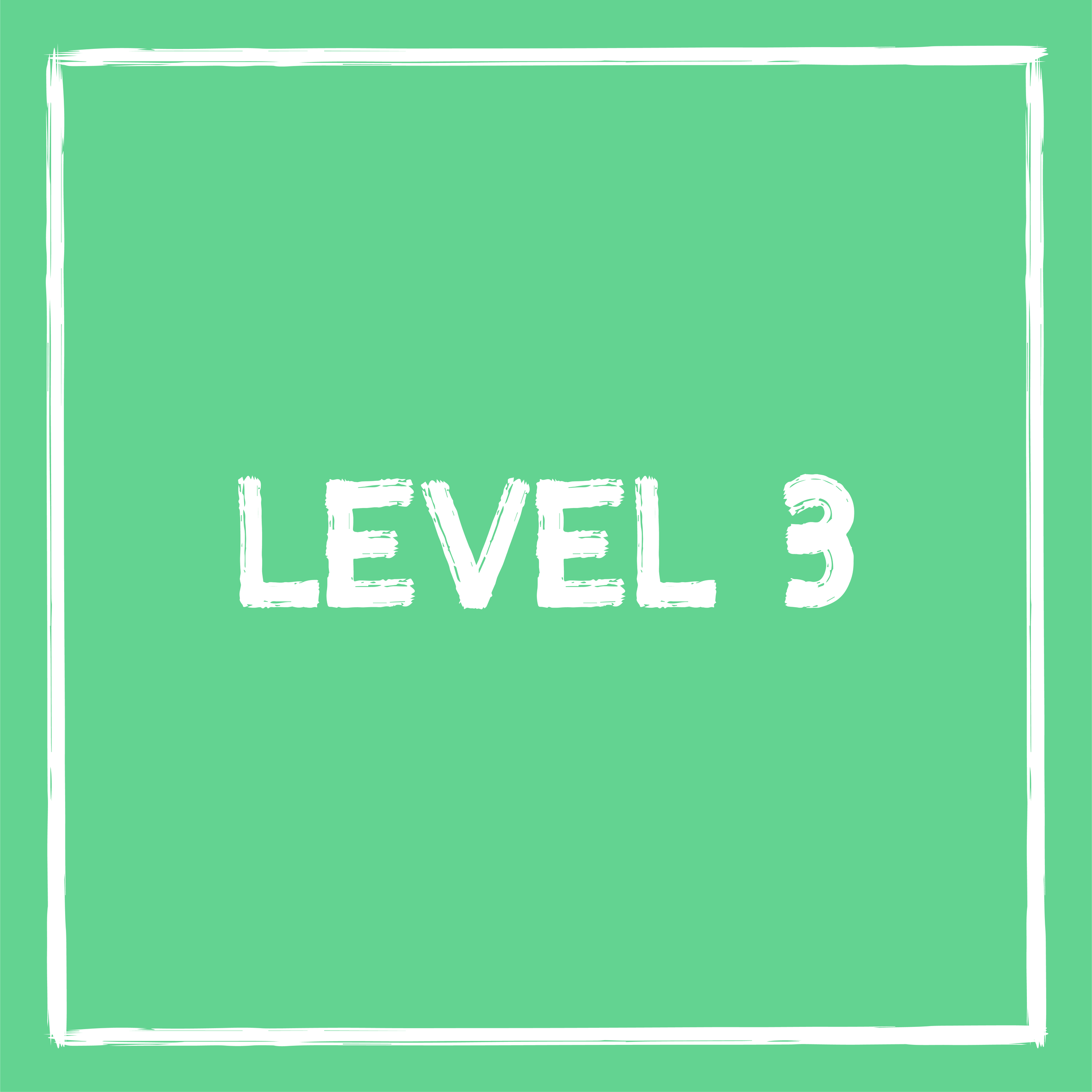
Advanced Coaching Program Calendar
Great coaches practice here. Register for single course tracks or sign up for complete class packs.
(note: all class times US Eastern Time)
Registration is NOW OPEN for Season 13 .
Flexible start dates. Begin your journey today!

110 Foundations of Ontological Learning - Wrapping it up
In this session, Carol will support participants as they complete the study of the Foundation of Ontological Coaching. They will grow in understanding how the ontological coaching distinctions are applied within coaching to support clients in how they are being to accomplish what they desire. Carol will coach a volunteer participant and then process with the participants how the principles were applied. Carol will share the deep value she has witnessed with her coaching and mentoring clients in her almost 20 years of Ontological Coaching practice
PRE-READING: Coaching to the Human Soul, Vol 1, by Alan Sieler: pp 1-11 (review) & 307-316
Led by Carol Harris-Fike

109: Introduction to Somatic Coaching
What are somatics? How is the physical body a domain of learning in coaching? In this class, you will be given some of the basic distinctions in somatics, and begin to see how to enter this domain skillfully in your coaching.
PRE-READING: Coaching to the Human Soul, Vol 1, by Alan Sieler: pp 21-22, 87-88, 355-356
Led by Dave Story

104 Ontology and Linguistics Part 3 The Cycle of the Promise
Part 3 of 4: A key part of conversational mastery is understanding and utilizing the cycle of the promise. In this class, we will dive deep into the Cycle of the Promise and how it shows up in everyday life.
PRE-READING: Coaching to the Human Soul, Vol 1: Appendix B, p 349; pp 214-217 & pp 234-237
Led by Leah Kedar and Sophee Payne

108 Exploring Moods and Emotions in Coaching
Moods and emotions are one of the three main categories of human experience that ontological coaches use to help clients discover their breakdowns. In this course, students will look at the distinctions between emotions and moods. They also will take a look at four basic moods – resentment, resignation, acceptance and ambition. Understanding which mood clients spend their time in helps reveal what types of actions are available.
PRE-READING: Coaching to the Human Soul, Vol I, Alan Sieler: pp 8-11, 20-21, 106-111
Led by Kohei Yoshino

107 Learning to Learn
Ontological coaching uses the approach of observing what it means to be a human being. Epistemology, how we learn, is a component of what it means to be human. In what ways do we support or detract from our learning? How do we determine what territories we need to explore? Join us for a conversation on what learning has to do with coaching.
PRE-READING: Coaching to the Human Soul, Vol I, Alan Sieler: pp 2-3, 64-65, 35-37
Led by Carol Roller

106 Ontological Coaching Distinctions in Conversation
What types of conversations are you typically in? Do you know? Attend this class to learn about different variations of conversations and how clarifying which conversation you are in or which oen you want to be in can help pave the way for better results with others.
PRE-READING: Coaching to the Human Soul Vol. 1, Alan Sieler, pp246-255
Led by Leah Kedar

105 Ontology and Linguistics Part 4 Generative Linguistics - the Power of Declarations
Part 4 of 4: We often think of language as descriptive but it has much more power than that. Language also has a generative process. We will reveal the power of declarations, how to notice them, their "congurency" and how to use them in a coaching session.
PRE-READING: Coaching to the Human Soul, Vol. I, Alan Sieler: pp169-176
Led by Croft Edwards

103 Ontology and Linguistics Part 2: Requests, Offers, Promises
Part 2 of 4 Part Series: In this session, we will look at the technology and distinctions of requests, offers and promises to understand where a client's breakdowns in language may be occurring if they are not getting the results they seek. Language also "lives in the body and has mood and emotion as a backdrop. We will practice listening for effective use of requests, offers and promises in our everyday life.
PRE-READING: Coaching to the Human Soul, Vol.I, Alan Sieler pp 140-141; pp 214-217; pp 218-223 & pp 234-237
Led by Carol Roller

102 Ontology and Linguistics Part 1 Assessments and Assertions
Part 1 of 4 Part Series: Linguistics is the study of the nature, structure, and variation of language, including phonetics, phonology, morphology, syntax, semantics, sociolinguistics, and pragmatics. We will look at key distinctions in the "technology of language" - both yours as a coach and your clients. This class will focus on two main areas -- assessments and assertions and how you can start separating fact from story and the "phenomena" versus the "explanation of the phenomena". This one tool is absolutely essential to coaches not being "stuck" in the client's worldview. This is the first of 3 classes covering linguistics.
PRE-READING: 102 - Coaching to the Human Soul, Vol.I, Alan Sieler pp 140-142, pp 164-166 & pp 182-184
Led by Charles Feltman

101 What is Ontology?
Ontology is the study of the "way of being" of an individual, team or organization. Ontology gives even very experienced coaches new "distinctions" in order to work with their clients in a deeply transformative way. In this first class we will introduce the 3 primary domains of ontology - linguistics, emotional realm and somatics as areas for discovery. We will also look at first and second order learning and the concept of the "observer" or witness state. We will also introduce the concept of "breakdown" or "break in transparency". Through understanding the distinctions that are often “invisible” to most coaches we can help people have dramatic insights, learn to awaken to new possibility all by using this “multi-lens” and multidisciplinary approach. The basic models and worldview that help you observe and lead differently. What is a "Breakdown" and how does it Affect Transformaiton, Midfulness and Collaboration? (Intro to Basic Ontological Distinctions - BEL and OAR and Breakdown...).
Led by Carol Harris-Fike

110 Foundations of Ontological Learning - Wrapping it up
In this session, Carol will support participants as they complete the study of the Foundation of Ontological Coaching. They will grow in understanding how the ontological coaching distinctions are applied within coaching to support clients in how they are being to accomplish what they desire. Carol will coach a volunteer participant and then process with the participants how the principles were applied. Carol will share the deep value she has witnessed with her coaching and mentoring clients in her almost 20 years of Ontological Coaching practice
Led by Carol Harris-Fike

106 Ontological Coaching Distinctions in Conversation
What types of conversations are you typically in? Do you know? Attend this class to learn about different variations of conversations and how clarifying which conversation you are in or which oen you want to be in can help pave the way for better results with others.
Led by Carol Roller

109: Introduction to Somatic Coaching
What are somatics? How is the physical body a domain of learning in coaching? In this class, you will be given some of the basic distinctions in somatics, and begin to see how to enter this domain skillfully in your coaching.
Led by Croft Edwards

108 Exploring Moods and Emotions in Coaching
Moods and emotions are one of the three main categories of human experience that ontological coaches use to help clients discover their breakdowns. In this course, students will look at the distinctions between emotions and moods. They also will take a look at four basic moods – resentment, resignation, acceptance and ambition. Understanding which mood clients spend their time in helps reveal what types of actions are available.
Led by Croft Edwards

107 Learning to Learn
Ontological coaching uses the approach of observing what it means to be a human being. Epistemology, how we learn, is a component of what it means to be human. In what ways do we support or detract from our learning? How do we determine what territories we need to explore? Join us for a conversation on what learning has to do with coaching.
Led by Carol Harris-Fike

105 Ontology and Linguistics Part 4 Generative Linguistics - the Power of Declarations
Part 4 of 4: We often think of language as descriptive but it has much more power than that. Language also has a generative process. We will reveal the power of declarations, how to notice them, their "congurency" and how to use them in a coaching session.
Led by Pam Rechel

104 Ontology and Linguistics Part 3 The Cycle of the Promise
Part 3 of 4: A key part of conversational mastery is understanding and utilizing the cycle of the promise. In this class, we will dive deep into the Cycle of the Promise and how it shows up in everyday life.
Led by Francisco Gonima

103 Ontology and Linguistics Part 2: Requests, Offers, Promises
Part 2 of 4 Part Series: In this session, we will look at the technology and distinctions of requests, offers and promises to understand where a client's breakdowns in language may be occurring if they are not getting the results they seek. Language also "lives in the body and has mood and emotion as a backdrop. We will practice listening for effective use of requests, offers and promises in our everyday life.
Led by Carol Harris-Fike and Dawn Hicks

102 Ontology and Linguistics Part 1 Assessments and Assertions
Part 1 of 4 Part Series: Linguistics is the study of the nature, structure, and variation of language, including phonetics, phonology, morphology, syntax, semantics, sociolinguistics, and pragmatics. We will look at key distinctions in the "technology of language" - both yours as a coach and your clients. This class will focus on two main areas -- assessments and assertions and how you can start separating fact from story and the "phenomena" versus the "explanation of the phenomena". This one tool is absolutely essential to coaches not being "stuck" in the client's worldview. This is the first of 3 classes covering linguistics.
Led by Pam Rechel

101 What is Ontology?
Ontology is the study of the "way of being" of an individual, team or organization. Ontology gives even very experienced coaches new "distinctions" in order to work with their clients in a deeply transformative way. In this first class we will introduce the 3 primary domains of ontology - linguistics, emotional realm and somatics as areas for discovery. We will also look at first and second order learning and the concept of the "observer" or witness state. We will also introduce the concept of "breakdown" or "break in transparency". Through understanding the distinctions that are often “invisible” to most coaches we can help people have dramatic insights, learn to awaken to new possibility all by using this “multi-lens” and multidisciplinary approach. The basic models and worldview that help you observe and lead differently. What is a "Breakdown" and how does it Affect Transformaiton, Midfulness and Collaboration? (Intro to Basic Ontological Distinctions - BEL and OAR and Breakdown...).
Led by Charles Feltman

Season 13 Kickoff
Welcome to Season 13 of the Advanced Coaching Practicum. Meet the team for a review of the upcoming season.
Led by Libby Robinson

110 Foundations of Ontological Learning - Wrapping it up
In this session, Carol will support participants as they complete the study of the Foundation of Ontological Coaching. They will grow in understanding how the OC distinctions are applied within coaching to support clients in how they are being to accomplish what they desire. Carol will coach a volunteer participant and then process with the participants how the principles were applied. Carol will share the deep value she has witnessed with her coaching and mentoring clients in her almost 20 years of Ontological Coaching practice. This is the final class for the 2nd FOL track for Season 12.
Led by Carol Harris Fike

109 Introduction to Somatic Coaching
What are somatics? How is the physical body a domain of learning in coaching. In this class you will be given some of the basic distinctions in somatics, and begin to see how to enter this domain skillfully in your coaching.
Led by Carol Harris-Fike

108: Exploring Moods and Emotions in Coaching
Moods and emotions are one of the three main categories of human experience that ontological coaches use to help clients discover their breakdowns. In this course, students will look at the distinctions between emotions and moods. They also will take a look at four basic moods – resentment, resignation, acceptance and ambition. Understanding which mood clients spend their time in helps reveal what types of actions are available.
Led by Nora Bouchard

107: Learning to Learn
Ontological coaching uses the approach of observing what it means to be a human being. Epistemology, how we learn, is a component of what it means to be human. In what ways do we support or detract from our learning? How do we determine what territories we need to explore? Join us for a conversation on what learning has to do with coaching.
Led by Carol Roller

106 Ontological Coaching Distinctions in Conversation
Do you know what conversation you are in? Knowing some critical distinctions about conversations can help you and your teams increase efficiency, collaboration and innovation. What types of conversations are you typically in? Do you know? Attend this class to learn about different variations of conversations and how clarifying which conversation you are in or which oen you want to be in can help pave the way for better results with others.
Led by Leah Kedar

105 Ontology and Linguistics - the Technology of your Language Reveals how you Lead. Part 4 Generative Linguistics - the Power of Declarations
Part 4 of 4: We often think of language as descriptive but it has much more power than that. Language also has a generative process. We will reveal the power of declarations, how to notice them, their "congurency" and how to use them in a coaching session.
Led by Carol Harris Fike

104 Ontology and Linguistics - the Technology of your Language Reveals how you Lead. Part 3 Generative Linguistics - the Power of Declarations
Part 3 of 4: A key part of conversational mastery is understanding and utilizing the cycle of the promise. In this tele-class we will dive deep into the Cycle of the Promise and how it shows up in everyday life.
Led by Charles Feltman

103 Ontology and Linguistics - the Technology of your Language Reveals how you Lead. Part 2: Requests, Offers, Promises / the Cycle of the Promise
Part 2 of 4: In this session we will look at the technology and distinctions of requests, offers and promises and the cylce of the promise to understand where a client's breakdowns in language may be occuring if they are not getting the results they seek. Language also "lives in the body and has mood and emotion as a backdrop. We will practice listening for effective use of requests, offers and promises in our everyday life.
Led by Pam Rechel

102 Ontology and Linguistics - the Technology of your Language Reveals how you Lead. Part 1: Assessments and Assertions
Part 1 of 4 Part Series: Linguistics is the study of the nature, structure, and variation of language, including phonetics, phonology, morphology, syntax, semantics, sociolinguistics, and pragmatics. We will look at key distinctions in the "technology of language" - both yours as a coach and your clients. This class will focus on two main areas -- assessments and assertions and how you can start separating fact from story and the "phenomena" versus the "explanation of the phenomena". This one tool is absolutely essential to coaches not being "stuck" in the client's worldview. This is the first of 3 classes covering linguistics.
Led by Carol Roller






